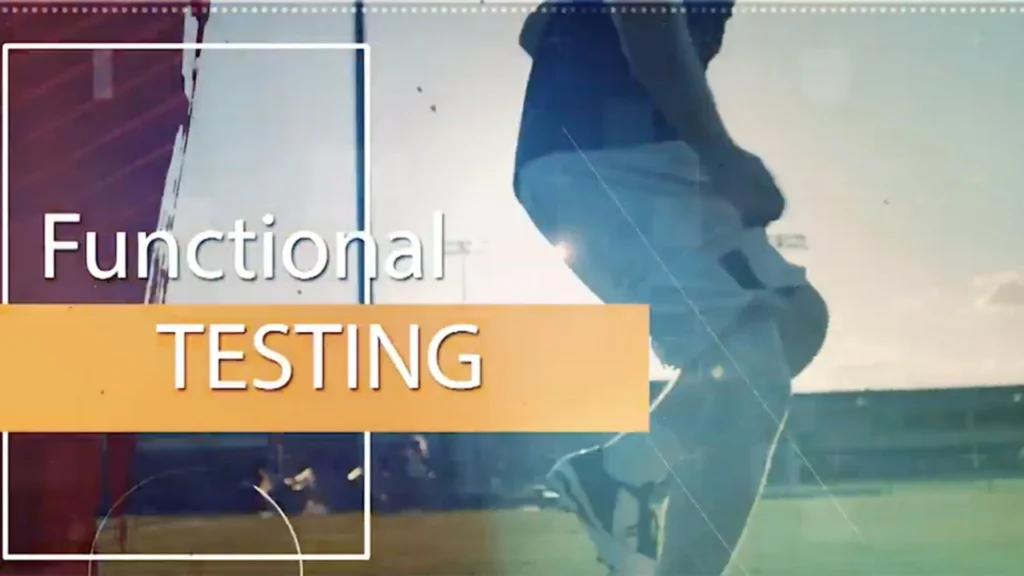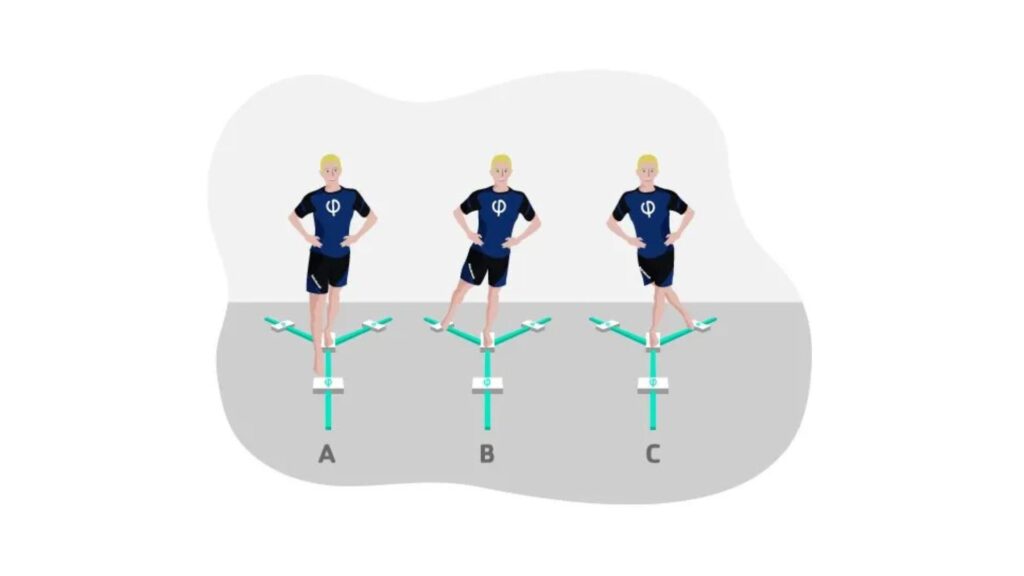Knee injuries are among the most common concerns for athletes in Canada. In Winnipeg, sports such as football, hockey, soccer, and volleyball contribute significantly to the incidence of knee injuries. Serious injuries like the anterior cruciate ligament (ACL) and meniscal damage often necessitate long periods of healing and can even disrupt an athlete’s career if not managed appropriately.
According to data from the International Journal of Sports Physical Therapy (IJSPT), knee injuries accounted for over 503 cases during 10 years of Canada Games competitions. This statistic highlights the vulnerability of athletes to such injuries. Here, functional testing or behavioral testing plays an important role in helping athletes return to their sport safely. This blog offers a comprehensive guide to functional testing in physiotherapy for athletes in Winnipeg following a knee injury.
Functional Testing: How Does it Work for Athletes?

Functional testing is a series of assessments designed to determine an athlete’s ability to perform movements and activities that are essential to their sport. Unlike traditional strength tests, functional tests simulate the physical demands of the sport, with a particular focus on aspects such as coordination, agility, balance, and endurance. This assessment provides objective data on the player’s readiness to return to sport after injury. By assessing these factors, physiotherapists in Winnipeg can tailor rehabilitation programs to address specific issues, ensuring a safe and effective recovery.
Benefits of Functional Testing for Athletes in Winnipeg
While physiotherapy for knee pain in Winnipeg helps manage knee injuries after a sport-related injury, it is also important to evaluate the athlete’s readiness to return to their sport. Here are some reasons that highlight why functional testing is important for athletes:
Objective Assessment
Functional testing provides an objective assessment of an athlete’s ability to perform specific tasks. Unlike conventional methods of personal judgment, this assessment uses quantifiable data to monitor the main aspects of performance. This includes agility, strength, and endurance. Functional testing for athletes in Winnipeg ensures that the individual is physically ready to resume activities.
Injury Prevention
One of the important roles of this assessment is its ability to identify impaired movements or imbalances that could potentially lead to future injuries. Injuries in Canadian athletes are most prevalent, and highlighting dysfunctional patterns allows physiotherapists to design targeted physio for knee pain or any discomfort. This approach reduces the risk of re-injury or new injuries before they can turn into high-stress situations during a game or practice.
Enhanced Performance
Besides injury prevention, functional testing also promotes enhanced performance in athletes. By early identification of physical deficits, individuals can focus on improving the areas where they are lacking. This helps them regain their full functional capacity, boosting overall athletic performance.
Return-to-Sport Decisions
Functional testing in physiotherapy plays a critical role in the decision-making process, whether an athlete should return to sport or not. This testing provides healthcare professionals with an evidence-based assessment of an athlete’s physical readiness. Additionally, it lowers the chances of premature return by ensuring that sports persons meet the necessary physical criteria before re-entering the field.
What Is the Main Focus of Functional Testing in Physiotherapy?

The primary goal of functional testing centres around evaluating an athlete’s readiness to return to sport after injury. Here are some of the key components of testing for injury prevention:
Strength
It is one of the main aspects of functional testing, especially for athletes recovering from knee injuries. Expert physiotherapists ensure that the muscles around the knee, such as hamstrings and quadriceps, are strong enough to support athletic movements, which is crucial for preventing re-injury risk. These tests mimic the sport-specific movements to provide a clear understanding of performance.
Balance and Proprioception
Control over movements is crucial for athletic performance, particularly for individuals returning to sports after a knee injury. Functional testing determines an individual’s ability to maintain stability. Physio for knee pain helps therapists identify movement imbalances, reducing the risk of potential injuries during athletic performance.
Agility and Coordination
Adapting to different movements quickly and efficiently is a crucial skill required in every sport. Poor coordination or delayed reflexes can result in improper landings, incorrect body mechanics, and, ultimately, increased strain on the knee. This factor is an important aspect of return-to-play assessments in Canada, ensuring that the athlete can adapt to fast movements without compromising their knee’s stability.
Endurance
Functional testing for athletes in Canada also helps evaluate their capacity to sustain physical activity over extended periods. For athletes, high endurance is crucial to meet the demands of their sport. This testing ensures that a sports person can maintain performance levels without getting exhausted early.
When Should Athletes Consider Functional Testing in Physiotherapy?
Functional testing or return-to-play assessments in Canada are crucial for athletes recovering from injuries, such as ACL tears, Achilles ruptures, tendinitis, or jumper’s knee. For knee injuries, in particular, functional testing becomes a mandatory part of rehabilitation at various stages. Here’s when it proves most beneficial:
- Post-Injury Rehabilitation: After the initial phase of ACL reconstruction, functional testing helps assess the athlete’s readiness to progress to more demanding activities. If the player has regained strength, balance, mobility, and endurance, functional assessments help determine if they are ready to move on to sport-specific training.
- Pre-Return to Sport: Functional testing in physiotherapy treatment in Winnipeg ensures that the athlete in recovery can perform sport-specific movements without pain. This step is important in minimizing the risk of re-injury, ensuring a safe and effective return to sport.
- Persistent Symptoms: If you are an active individual recovering from an ACL injury and continue to experience symptoms such as instability, weakness, or pain after initial rehabilitation, functional testing becomes essential. It helps identify underlying issues and determine whether further rehabilitation is needed.
Conclusion
Functional testing in physiotherapy is an essential part of the rehabilitation process for athletes recovering from knee injuries. By providing expert insights on strength, mobility, and movement patterns, it ensures that athletes are ready to return to their sport safely. At Bridgwater Physiotherapy, our certified therapists specialize in evidence-based functional testing and create personalized rehabilitation plans tailored to each athlete’s recovery journey. From ACL tears to jumper’s knee, trust our expert team to guide your comeback. Book your assessment today and return to sport safely after injury.


